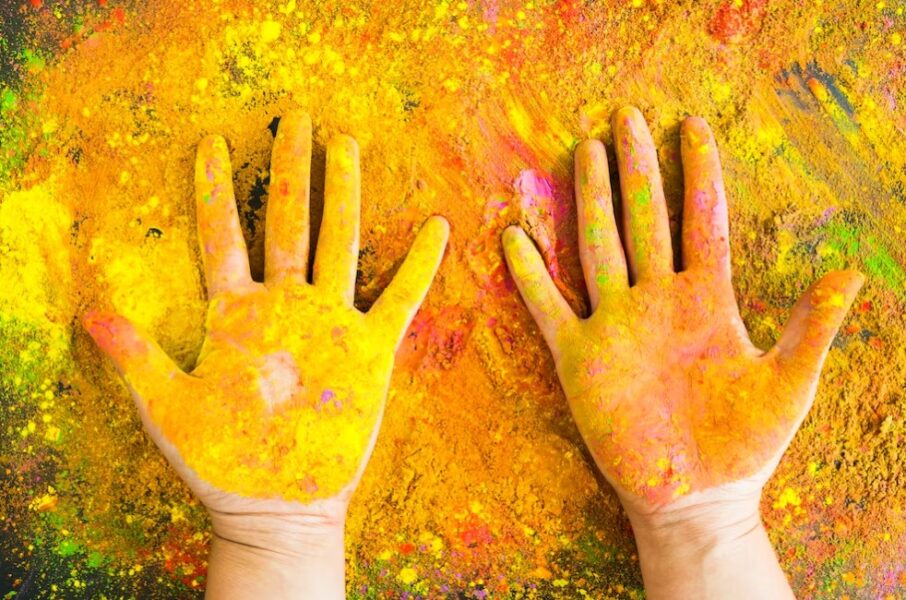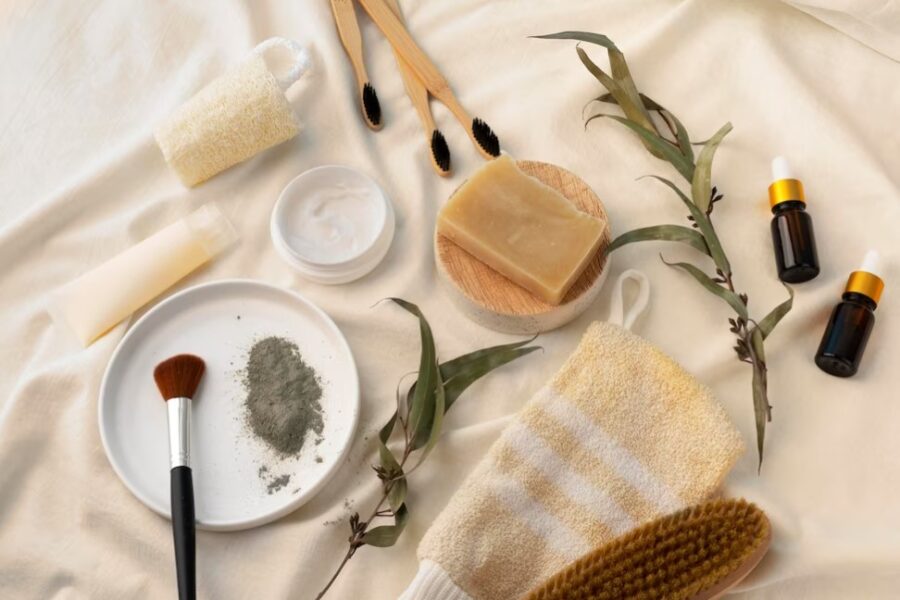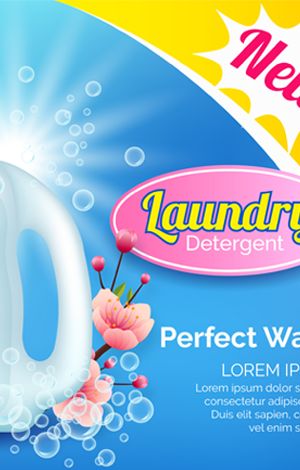
Thousands of sisters, and even brothers, visit the marketplaces around this time of year to choose a rakhi with a unique design. Some people like plain rakhis, while others go all out and buy fashion-forward threads. Many people who have younger siblings search for rakhis that have cartoons.
All of this effort is being made for purely emotional reasons. Rakhi may be only a thread to the rest of the world, but to the majority of Indians, it represents protection and companionship. The person whose hand it is wrapped on typically feels bad while throwing it away after the celebrations since it has a specific emotion. I am aware of folks who wait to remove them until all of the threads have come off.
These rakhis may have been produced of plastic and artificial dyes, harming the environment as a result. But this issue also has an environmentally friendly answer, just like every other one today.
A small number of environmentally-minded people in India have begun creating rakhis that may be grown into plants as well as safeguard the environment!
1. Gender Neutral Rakhis
Gargi, the founder of Ba No Batwo, who disrupted the practice of making rakhis by creating plantable rakhis in the past, has done it again. She has now designed gender-neutral plantable rakhis that people of all genders can buy. Additionally, she went above and beyond with her internet campaign, #MeriBehanMeriTakat (my sister, my strength).
She explains the idea by stating that "Raksha Bandhan also has a societal influence. Why should sisters only be protected by brothers? Sisters are resilient individuals who are capable of handling their own issues. They are also capable of defending their brothers. I'm attempting to alter this perception with my rakhis.
By taking part in your sister's Facebook campaign, you can spread the word about her unique abilities and talents here.
2. Help HIV patients by buying this Rakhi
Hand crafted and painted by people with disabilities in Bengaluru, The proceeds from the sale of these items will be given to HIV-affected children (ages 1 to 10) at the Infant Jesus HIV Home in Hennur, Bengaluru. This initiative was the brainchild of Roshan Raay, founder of Seed Paper India, which manufactures seed papers.
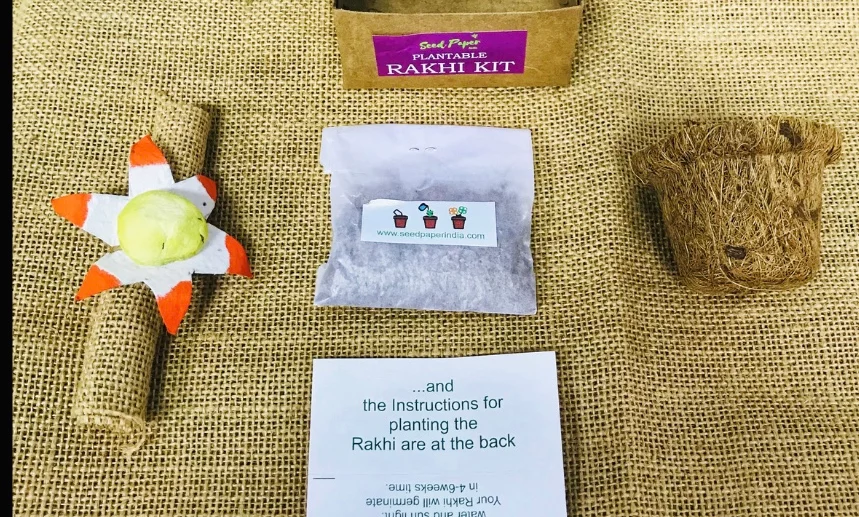
"Since we began producing eco-friendly rakhis two years ago, we have helped 24 persons with disabilities financially. We made the decision to contribute all of our revenues to HIV-positive individuals this year because we wanted to have a greater effect.
One plantable seed (tulsi) rakhi, coco peat/organic fertilizer, a coco pot planter, and an instruction card are included in the eco-friendly package created by Seed Paper India. The kit can germinate in 4-6 weeks and comes packaged in recyclable paper.
Around 8,000 rakhis were sold to domestic and foreign consumers by Roshan's team in the previous year. They want to sell 15,000 units this year.
View the selection from Seed Paper India here.
3. Plantable Rakhi
People often retain awareness that comes from personal experience, and for Saurabh, it presented a chance to effect change. He started working for his family's ball pen manufacturing company after graduating. A year later, he gave up using plastic in his life and quit the firm.
"A pen that will only be used once requires a significant quantity of plastic to make. My experience there served as a wake-up call. I thus established my own business to market eco-friendly stationery," Saurabh explains.
Each month, his firm, BioQ, produces 5–6 lakh plantable pens and pencils.
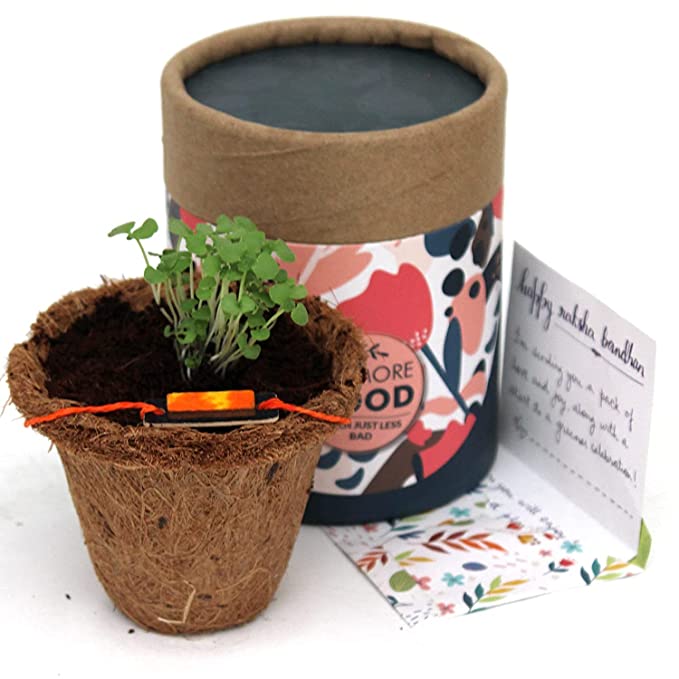
He switched to plantable rakhis, but how? He responds, "My sister has been tying me rakhis for the past 20 years, and every year I feel bad when I throw them away. We used the idea in rakhis because we were already producing seed pens.
The firm sold 6,000 rakhis the previous year, and this year's goal is 15,000 rakhis. To create jobs, some 20 women from Delhi's slums have been hired to make the green rakhis.
View BioQ's selection of plantable rakhis manufactured from recycled kraft paper here.
4. Each Thread has a story to tell
Human rights advocate Navleen Kumar was stabbed 19 times after holding a protest in Mumbai for the rights of adivasis. Gram Art has created a 19-knot rakhi in her honour. The uterus-shaped rakhi draws attention to the gender imbalance in our culture, while the pink-thread rakhi with scarlet bixa orellana seeds honours menstruation.
In order to raise awareness of socioeconomic concerns, Madhya Pradesh-based Gram Art created a number of these rakhis for this event. They worked along with 100 rural women from Maharashtra and Madhya Pradesh as part of the "Hum Kamzor Nahi" campaign to produce the seed rakhis.
The organization's founders had to choose between losing customers and raising awareness.
We sold 12,000 seed rakhis the previous year; this year, we want to sell 20,000. We are aware that bringing up subjects like menstruation and creating rakhis in the form of a uterus may bore our clients and cause us to fall short of our goal. But bringing up such societal concerns is more crucial for us, says one of the founders, Lalit Vamshi.
5. Sculpted with Clay and Love
Rakhis by Abhika Creations are made of clay and include unique Vinca Rosea seeds that bloom twice a year. It is offered by the organisation in a package that includes a biodegradable pot, a bag of soil, and an instruction sheet. Butter paper is used to wrap the rakhis, which are then preserved in a cardboard box. They affix paper tape to the box to seal it rather than plastic-based cello tape.
You may also like: 9 Sustainable fashion brands in India
6. Of newspaper and eco-friendly packaging
Smita Bhatter's plantable rakhis with cabbage seeds substitute roli and rice for tilak, soil, and a small pot. "Each present is unique and holds memories. A gift may be simply another item to some individuals, but with our selection, you can give experiences instead. Going back to our roots will raise everyone's awareness of the requirements of our environment in today's time, when electronics have captured people's hearts and minds, says Smita, creator of BySmita.
Choose environmentally friendly plantable rakhis to start your path toward making a commitment to the earth. Let the plant serve as a pleasant reminder of your close relationship with your siblings and other loved ones.



